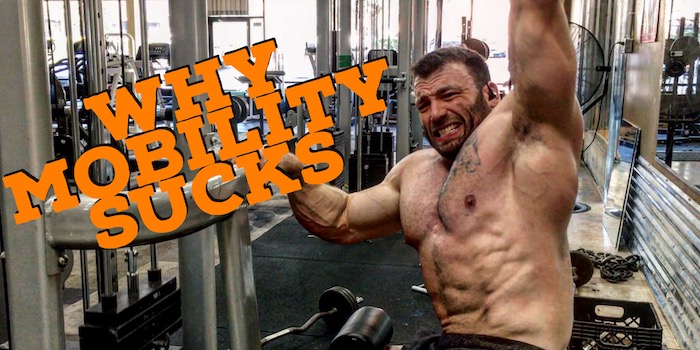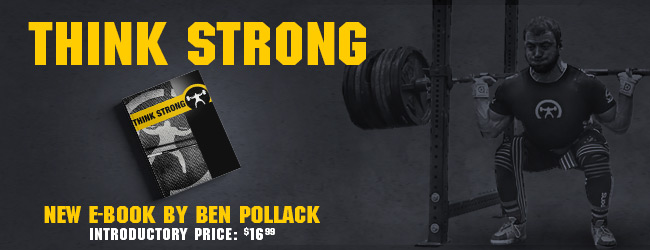
For those of you who don’t know, I’m a graduate student at Texas working towards my PhD in the history of fitness, but I also coach a few lifters. I’m pretty selective about who I work with: they’re all highly motivated, very smart, and I learn from all of them.
One of my guys from Finland used to work as a sports massage therapist (he’s beastly strong, too, with a 300-kilo raw squat and 275-kilo pull). Recently, we’ve been discussing movement quality, and how good movement is very, very different from mobility. Now, despite the title of this article, I think mobility is great -- but the emphasis on doing some truly ridiculous shit to be able to contort yourself into a pretzel is misguided. I’ll see some people at the gym literally spend hours on mobility before even touching a barbell. First, who the fuck has hours to spend on that? Second, unless you’re into some truly extreme sex stuff, your hips don’t need a 360-degree range of motion. And third, many of these same people who spend all this time on mobility still aren’t able to move well.
What’s the difference between mobility and movement? Depends on the context.
For a casual gymgoer, quality movement might be very similar to quality of life -- being able to take long walks or sit at a desk without back or knee pain; sleep comfortably; or carry groceries. Let’s face it, though: if you’re reading training or coaching logs on Elitefts, you’re probably not a casual gymgoer. You’re probably a serious strength athlete who wants to improve your body and your performance.
If you’re a powerlifter, quality movement refers directly to your skill at the squat, bench press, and deadlift -- specifically, your ability to find and maintain positions of strength while fulfilling all the requirements of a competition lift. For example, if you’re cutting your squats high, that’s not a quality movement -- but if you’re trying to touch your ass to the platform, that’s no better. Most importantly, you’re balancing the load evenly across all of your muscle groups -- while accounting for your personal strengths, weaknesses, and leverages.
If you’re a bodybuilder, quality movement is all about muscle. You must be able to activate the muscles you’re targeting, even on compound lifts, and while moving heavy weight. This is more than just mind-muscle connection (although that’s a big part of it). Quality movement for bodybuilding requires the ability and creativity to find positions that safely and effectively load all the muscles in your body -- especially your weakest and smallest ones. That’s really fucking hard, because you’ll naturally want to avoid loading those lagging muscle groups. I struggle with it myself on pressing movements, where my shoulders and triceps will tend to take over on exercises that I want to work my pecs, and vice versa.
The fact that it’s really fucking hard explains why so many people jump on the mobility train: mobility is (relatively) easy. It doesn’t take years and years of consistent effort to learn to foam roll. You don’t risk injury when you’re digging your back into a lacrosse ball. And you don’t need an expert to teach you how to stretch. And again, a little consistent mobility work can have huge benefits. Just don’t fall into the trap of spending so much time and effort on mobility that you neglect the more important and more difficult aspects of your training.









